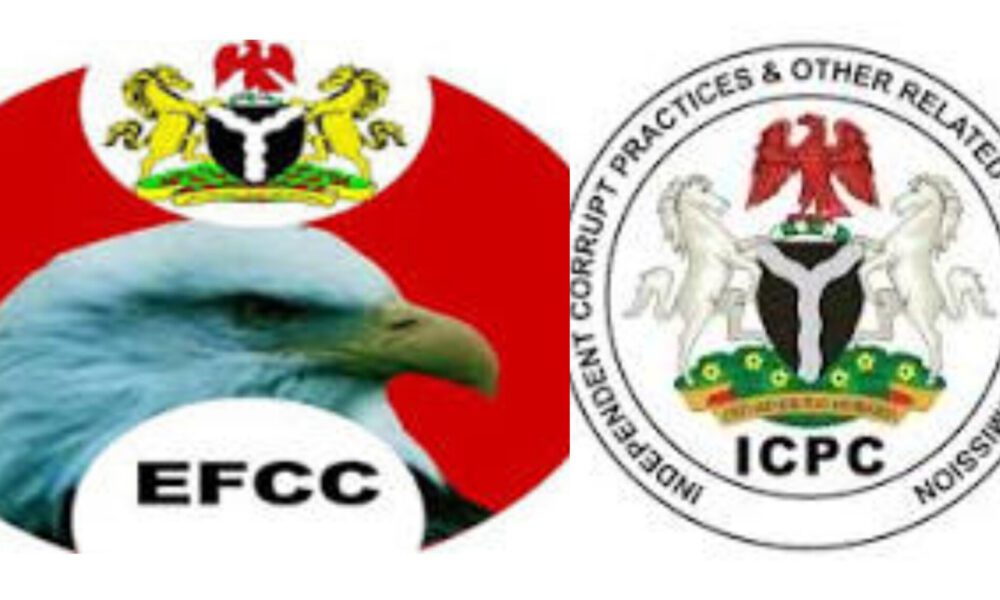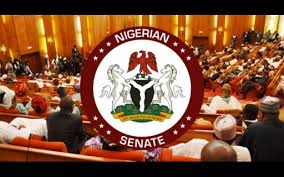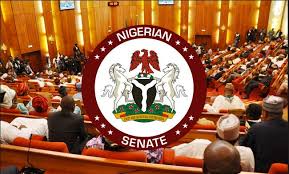**Advocate for Greater Transparency, Accountability
**Call for Greater Private Sector Involvement
The Economic and Financtial crimes Commission (EFCC) and the Independent Corrupt Practices and Other Offences Commission(ICPC) have accused some National Assembly members of allegedly utilizing proxies to execute constituency Projects.
Apart from that, the bidding process is alleged to be selective as it is only given to contractors based on their interest.
This is in contrast to the position that lawmakers don’t have imput in the nomination of contractors or the execution of their constituency projects.
The issue they said has also contributed to the lack of transparency leading to many abandoned constituency projects that litter many federal contituencies and senatorial districts across Nigeria.
Dr. Eze Johnson who represent3d the EFCC Chairman, Mr. Alanipekun Olukoyede highlighted corruption challenges and called for enhanced monitoring and transparency in grassroots development projects during A Policy Dialogue on the role of the Private Sector in the Implementation of Constituency Projects in Nigeria.
The event was initiated by OrderPaper Nigeria as part of a broader effort to promote accountability in governance in form of Advocacy Iniatiative

In his presentation at the Policy Dialogue on grassroots development, Johnson expressed concern over the widespread corruption in the execution of constituency projects, also known as Zonal Intervention Projects (ZIPs).
He emphasized the need for a stronger collaboration between anti-corruption agencies, contractors, government ministries, and local communities to ensure accountability in project execution.
Johnson noted that while the EFCC is often seen as an enforcement body dealing with economic and financial crimes after they occur, prevention is equally vital.
He used the metaphor of turning off the tap to prevent a flood rather than mopping up water after it spills to explain the importance of proactive measures. “It’s easier, cheaper, and faster to prevent fraud than to address it after the damage is done,” he remarked.
Dr. Johnson raised key issues concerning the abandonment and mismanagement of ZIPs, revealing that investigations often uncover inflated bills of quantities and under-delivered work.
He shared a real-world example of an abandoned school block project, where funds were disbursed, but substandard materials were used, and funds were diverted. “We follow the money and often find it going to places it shouldn’t be,” he said.
He further identified conflict of interest issues, noting that some contractors behind the projects have personal or political ties to legislators, creating a lack of transparency in the tendering process.
He emphasized the need for open tendering processes rather than selective ones, which allow for favoritism and corruption.
Johnson concluded by urging all stakeholders, contractors, sponsors, and local communities to take responsibility for ensuring that projects meet the needs of the grassroots.
“It’s not just the contractors who are responsible; it’s also the sponsors and the communities who must be vigilant and involved,” he said.
In the sane vein the Independent Corrupt Practices and Other Related Offenses Commission (ICPC) also made reference to legislators connivance with contractors in the execution or abandoned projects
He emphasized the critical role of the private sector in ensuring transparency and accountability in the implementation of constituency projects across Nigeria.
Thr Secretary to the Commission, Clifford Okudiraparao, who
represented ICPC Chairman Dr. Musa Aliyu, spoke on the need for enhanced monitoring and collaboration to prevent corruption and the diversion of public funds.
Okudiraparao highlighted the rampant misuse of funds allocated for constituency projects, pointing out how contractors, often in connivance with public officials, abandon projects or deliver substandard work. “Constituency projects have become a red flag for systematic corruption, with funds being siphoned off and communities left underserved,” he stated.
“The ICPC launched the Constituency and Executive Projects Tracking Initiative (CEPTI) in 2019, designed to proactively prevent fraud by monitoring the implementation of constituency projects across the country.
“According to Okudiraparao, the initiative has tracked over 3,485 projects worth ₦433 billion from 2019 to 2023, compelling over 500 contractors to return to sites to complete abandoned projects. “This initiative has saved the government hundreds of billions of Naira and ensured that projects benefit the grassroots as intended,” he said.
Okudiraparao urged the private sector, civil society, and the media to increase their involvement in monitoring these projects. He noted that collaboration with private entities can provide technical expertise, transparency, and accountability, which are crucial for ensuring the success of public projects. “Private sector involvement is integral to ensuring that public funds are used effectively and that communities receive the benefits they deserve,” he added.
The ICPC official also pointed out the importance of local government involvement, particularly in light of the recent Supreme Court ruling affirming their financial autonomy. He argued that local governments, being closer to the grassroots, must play a more active role in ensuring the proper execution of projects that directly affect their communities.
Okudiraparao concluded by reiterating the Commission’s commitment to ensuring accountability and fighting corruption, stating that continued collaboration between the ICPC, the National Assembly, and the private sector is essential for improving project outcomes. “It’s not just about prosecution; it’s about prevention, transparency, and ensuring that every Naira spent by the government brings real benefits to the people.”
The leader of the senate Opeyemi Bamidele said the National Assembly play a pivotal role in ensuring constituency projects are implemented effectively.
“While lawmakers do not execute these projects, they are responsible for legislative oversight, budgetary approval and ensuring transparency in the procurement process. Through strong legislative frameworks and public engagement, the National Assembly helps ensure the projects meet the needs of local communities and serve their intended purposes.
The Executive Director of OrderPaper Nigeria, Oke Epia called for increased private sector involvement in constituency projects to combat corruption and inefficiency. He pointed out that although approximately ₦100 billion is allocated to these projects annually, their benefits are often not realized due to a lack of transparency and accountability. He emphasized that while lawmakers are often blamed for unsuccessful projects, their role is primarily to nominate projects rather than implement them.
The Director urged for more scrutiny of contractors, as their performance significantly influences project outcomes, and highlighted the responsibility of financial institutions in managing funds related to these projects.
He expressed the hope that the event would lead to productive discussions on enhancing collaboration between stakeholders and improving the overall framework of constituency projects in Nigeria.



